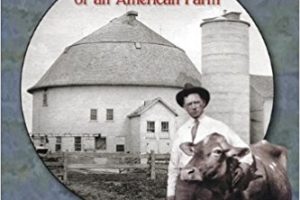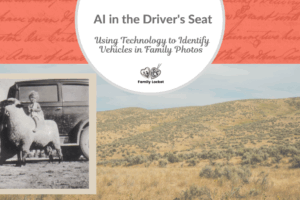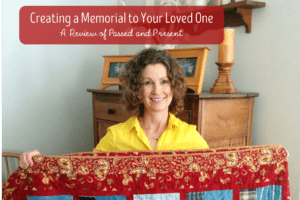Are you looking for an engrossing book? One that tells captivating, true stories about real women in history? Frontier Grit by Marianne Monson delivers twelve short stories, each based on a woman who was a pioneer in her own right. An excerpt from the introduction gives us the author’s insights.
The women in this book come from a variety of backgrounds and traveled in a number of different directions – these stories represent a mere handful of the women who survived and even thrived on a multitude of gritty, tumultuous frontiers. . . These stories are fit inspiration for modern-day efforts to venture into new and unknown paths, climb ragged, rocky mountains, and harness a vision of how we might rebuild this tumultuous world into something better, truer, and stronger for generations yet to come.
 As family historians, we can gain inspiration for writing our own family stories from reading Frontier Grit. Do you have an ancestor who headed west for the California gold rush? How about an African American ancestor who found success following emancipation? Were any of the women in your family tree a suffragette? A state senator? A stagecoach driver? The women in Frontier Grit come from all backgrounds and races. Some are legends and others little known. Each woman is remarkable and the author’s extensive research is included at the end of each story, with suggestions for further reading.
As family historians, we can gain inspiration for writing our own family stories from reading Frontier Grit. Do you have an ancestor who headed west for the California gold rush? How about an African American ancestor who found success following emancipation? Were any of the women in your family tree a suffragette? A state senator? A stagecoach driver? The women in Frontier Grit come from all backgrounds and races. Some are legends and others little known. Each woman is remarkable and the author’s extensive research is included at the end of each story, with suggestions for further reading.
Even if our ancestors weren’t as noteworthy as the featured women in Frontier Grit, we can learn from author, Marianne Monson how to make our stories come alive. Marianne graciously agreed to answer some questions about her experiences as an author and historian.
To purchase Frontier Grit, follow this affiliate link to Amazon.com: Frontier Grit by Marianne Monson. If you purchase the book through our link, we receive a commission, but it doesn’t change the price of the item. Thank you!
AUTHOR INTERVIEW WITH MARIANNE MONSON
What was the initial spark that inspired you to write Frontier Grit?
My editor talked me into it. I’d written several historical fiction novels set in the pioneer era, so I already had a strong interest in the period, combined with a long-term fascination with women’s history in general, but I’d never considered myself much of a non-fiction writer. My editor convinced me that I would enjoy it, and she was right. I agreed to do the project as long as I was able to define “pioneer” away from its roots in westward expansionism–I defined a pioneer as a woman who had traveled beyond the known boundaries of her own culture–which allowed me to bring in Mexican American women, immigrants, and Native women as well. By the end of the project, I was completely captivated by these remarkable women and the relevance they hold to contemporary America.
What steps did you take in researching the women featured in Frontier Grit?
I started by reading everything I could find on the subject. I was looking for women who had done incredible things, but who had been largely ignored by history–women without a lot of name recognition for the average modern reader. I also spoke to people about their own family stories. Makaopiopiopo’s story, a native Hawaiian woman, came about in this way. Once I’d identified the women I wanted to profile, I began digging. I went to historical societies, visited graveyards, spoke with archivists, read journals–really I read anything I could get my hands on in order to better understand these twelve women. One highlight was visiting the Donaldina Cameron House in San Francisco. Being able to walk where she had walked and touch the bricks of the building that had been warped by the great fire of 1906, was an absolute dream come true.
What advice would you give family historians wanting to write the stories of their ancestors?
My advice is: don’t shy away from the controversy, from the flaws. People aren’t perfect, and in many ways the flaws are what make us each human. Acknowledge those weaknesses, examine them. That being said, I also think it’s very important to get a strong sense of what was most important to a individual and tell their story in a way they would be happy with–a way that is true to their own values. I tried very much to do that with Frontier Grit, and I think by approaching each story with a good dose of empathy, it made for a stronger book. I know it might seem like a contradiction to acknowledge flaws and to stay true to what an individual would want, but the dance between the two goals is where the really relevant stories are found. We are all imperfect humans, but if our stories are worth telling, we have powerful strengths as well.
Are you also a family historian? Are any of the women featured an ancestor?
None of the twelve women in the book are related to me, but my great aunt’s photo is featured at the beginning of the book (she’s pheasant hunting in Oregon in the early 1900s). The book is also dedicated to my own grandmother who was an avid family historian. I attribute my interest in the pioneer era to the fact that she raised me on pioneer stories and provided me with plenty of dress ups. I have also published two novels based on one of my ancestors who joined the LDS church in England and later sang with the Mormon Tabernacle Choir (The Water is Wide and Nearer to Thee).
What personality traits, hobbies, or professional pursuits have helped you in your genealogy research?
My curiosity. Research feels like a treasure hunt to me. I love looking for the smallest details to help a story come to life. I am not a family historian in the same way my grandmother was. She was incredibly devoted to finding dates and tracking down details to add more generations to her family tree. I feel called to tell stories. I can look at the brief details of a person’s life and imagine what they might have felt like, what they might have experienced. I love the asking the question “What if?” Family history is most exciting to me when it’s linked to stories of people’s lives. Since I can’t possibly live all possible life experiences myself, I love exploring the many different ways there are to walk upon this earth. Collectively we have such immensely different backgrounds and experiences–and yet, as humans, we’re all connected.
What’s the best discovery you’ve made about your family?
One of my ancestors was born in Windsor Castle in England, and ended up living in a chicken coop for a time in the Utah desert. I don’t know why the juxtaposition of these two places captures my imagination so intensely, but it does. I’ve written a poem about her, trying to imagine what sort of adjustment that must have been for her. I’m inspired by her tenacity and her sacrifice.
Thanks, Marianne, for sharing your thoughts!




















Leave a Reply
Thanks for the note!